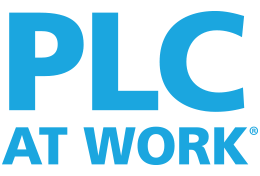DEMOGRAPHICS
Mason Crest Elementary, part of Fairfax County Public Schools, is located in Annandale, Virginia, a community of approximately 41,000 residents.
18,860 Students
- 72% Free and reduced lunch
- 19% English learners
- 10% Special education
Mason Crest Elementary's CHALLENGE
Mason Crest’s journey with Professional Learning Communities at Work® began during its first year in operation as a school. When the administrative team started at Mason Crest, their minds were piqued by research that proved schools perform best when they commit to working as a professional learning community (PLC).
The planning began by identifying what was essential to create a high-performing school. The administration knew early that working together would be a critical part of realizing the staff’s mission of ensuring high levels of learning for all. A clear focus and building a culture of continuous improvement would also be essential to meeting this goal. Mason Crest sought to monitor student data, developing plans to collectively move forward with each individual child’s education.
“At the beginning, we asked how we could lay that groundwork,” co-principal Sherry Shin said. “How could we fulfill that process?”
IMPLEMENTATION
Mason Crest’s administrators chose a PLC path after attending a retreat with Dr. Richard DuFour and Rebecca DuFour. Each teacher on staff received a copy of Learning by Doing: A Handbook for Professional Learning Communities at Work®.
The staff grew together quickly. For example, in the last work week before classes teachers studied individual chapters of Learning by Doing, then shared important lessons and findings with their colleagues in a collaborative environment.
All prospective candidates for staff openings at Mason Crest were also given an expectations document that laid the groundwork and integrated all new teachers into the PLC process from day one.
“We have to return and be committed to [the PLC] on an annual basis,” co-principal Andrew Pratt said. “Even with one new member, we always have a brand-new team.”
Mason Crest also embraced the PLC at Work® process to build specific structures into the school’s master schedule early on, securing uninterrupted time for teams to work together. Teacher roles in the PLC were determined by student needs, such as their learning, behavioral, and English language development requirements.
“We’ve made this commitment towards providing high levels of learning for all students,” Pratt said. “We’re always going to be willing to come together and have that conversation. … It’s essential for our students’ needs.”
“Teachers will feel relief [in a PLC]. If you were working in isolation by yourself, it may feel like an uphill battle that you cannot win, that you cannot meet all these children’s needs on your own.”
RESULTS
Through the PLC at Work process, Mason Crest created and maintained the successful culture of collaboration and continuous improvement it desired as a new school.
In year one, Mason Crest’s test scores exceeded the Commonwealth of Virginia’s accreditation benchmarks in all four subject categories: English, math, history, and science. Test scores continued to grow or hold steady in the second and third years of PLC involvement. Within two years, English and science passing percentages had each increased by at least 7 percent, and Mason Crest was beating the commonwealth’s passing rates by 5 to 16 percent, depending on the subject.
By year four, Mason Crest was recognized as a National Title I Distinguished School, as well as the first recipient of the DuFour Award.
The school’s model success has also drawn more than 300 site visits from educators and school teams since starting its PLC journey, with some visitors coming from as far away as Taiwan and Australia.
“Every year, we’re trying to think how we can get better and go deeper,” Dr. Shin said. “Now we’re able to see that in action, and we provide the staff opportunities to learn from each other, and we’re seeing the power in that.”
Reading Performance of Economically Disadvantaged Students, Proficient or Better
WHY PLC AT WORK®?
Professional learning communities (PLCs) are schools that empower educators to work collaboratively in recurring cycles of collective inquiry and action research to achieve better results for the students they serve.


